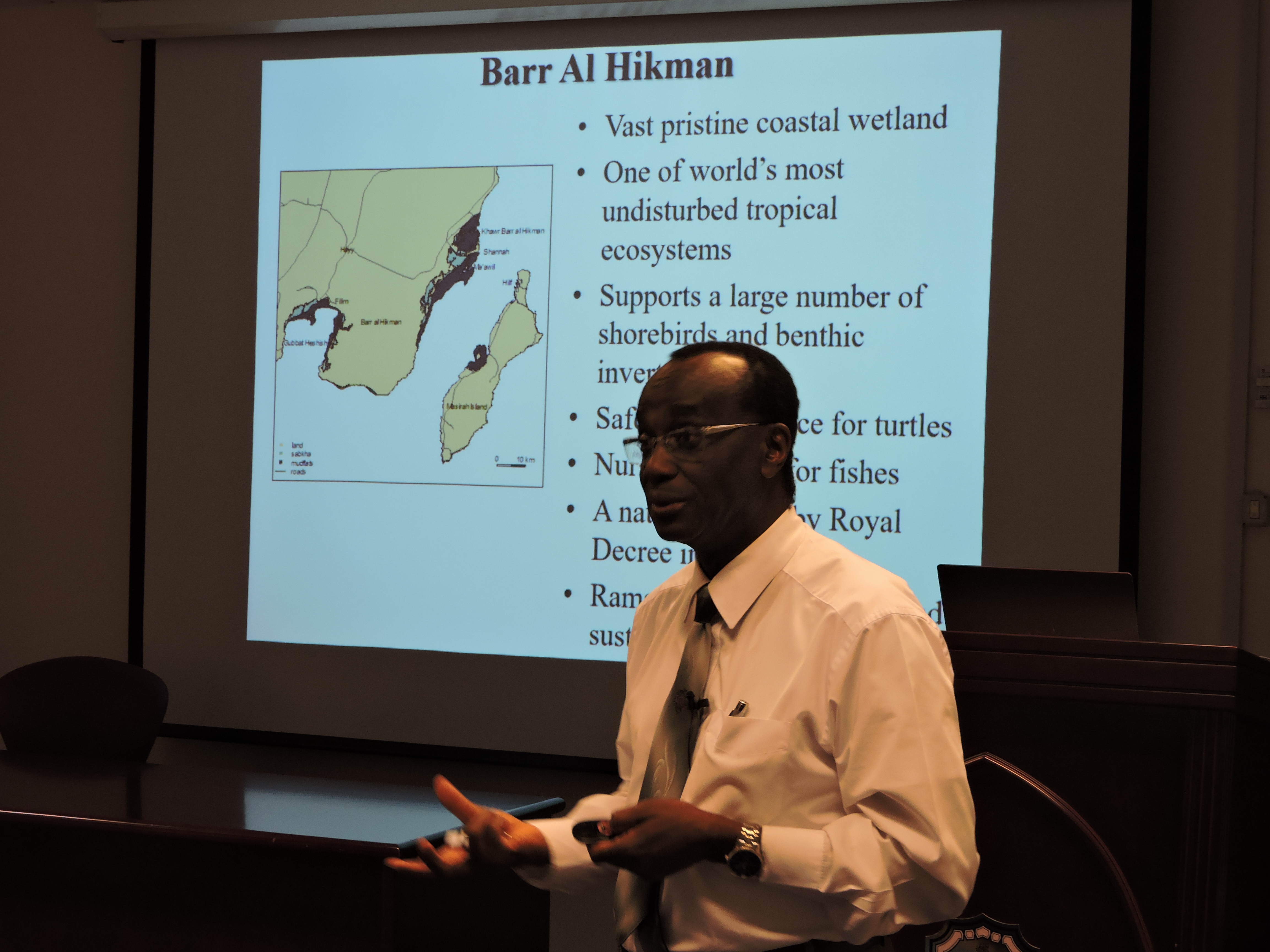
Muscat: Fitted with GPS devices, experts are tracking the migration of birds at Barr Al Hikman.
This is the first time experts are tracking the migration of crab plover and bar-tailed godwits within the West Asian-East African flyway.
More than one million migratory shorebirds visit Barr Al Hikman every year. Half of the species are long-distance migrants. The area is home to shorebirds that fly to different breeding locations.
Dr. Andy Kwarteng, Director, Remote Sensing and Geographical Information Systems Research Centre, Sultan Qaboos University, delivered a talk about his analysis of the migration of birds wintering at Barr Al Hikman, Sultanate of Oman.
The talk was organised by the Office of the Deputy Vice Chancellor for Postgraduate Studies and Research at SQU.
As part of The Research Council (TRC) sponsored project, researchers from Sultan Qaboos University and NIOZ Royal Netherlands Institute for Sea Research are tracking the migration of birds wintering at Barr Al Hikman using GPS devices fitted on the birds.
Dr. Andy Kwarteng said that bird migration is one of the most enthralling aspects of the avian world that has fascinated humankind for centuries. “Migratory birds may travel several hundred to thousand kilometers to breed, and return to warmer conditions in the fall. Monitoring the migration routes and the consistency of birds’ schedules could be a major indicator of any potential local, regional or global climate change. Such studies provide crucial information about where birds go and how they survive outside the breeding season. The twice a year migration from overwintering to breeding sites, and the return trip, occur throughout the world in well-established routes, or flyways. Migration of shorebirds in the West Asian-East African flyway is poorly understood, compared to other flyways. Water birds are good indicators of the status of the overall ecological status of wetlands”, he said.
Barr Al Hikman is a vast, pristine coastal wetland in the Sultanate, and is one of world’s most undisturbed tropical ecosystems. This area supports a large number of shorebirds and invertebrates, and is a safe foraging place for turtles and a nursery ground for fish. “With our study, we aim for an advanced understanding of the ecological processes that are shaping this unique system. By sharing our results, we hope to raise awareness about the international importance of ecosystems, such as Barr Al Hikman”, Dr. Kwarteng said.
The scientists have conducted migration studies on two species of birds wintering at Barr Al Hikman, the crab plover and the bar-tailed godwit.
The bar-tailed godwit is known to breed on the Arctic coasts and tundra in Europe and Asia, and spend the winters along the coast of tropical and temperate regions, including the Sultanate of Oman, Australia and New Zealand.
A recent survey at Barr Al Hikman in January 2016 counted 60,000 winter visitors, accounting for approximately 60 per cent of the flyway population. In November 2015, a team of professional bird catchers caught 10 bar-tailed godwits, and fit them with five gram Solar Platform Transmitter Terminals (PTTs).
According to Dr. Kwarteng, studying birds and their migration patterns offers a number of benefits to society, and the country in general. From the conservation point of view, by studying the stopovers and wintering locations, measures can be taken to protect and save these key locations. “Climate change and global warming influence the routes of many migratory birds and their annual migration rhythm.
Many migratory birds may change their routes, and shorten or cancel their journeys because of changing temperatures and other adverse conditions. Hence, research helps us to understand more about trends in global warming and measures to counter it. From an economic point of view, bird watching can help eco-tourism fly high. Bird watching-based tourism is growing rapidly across the world. An increasing number of birdwatchers are traveling to long haul destinations to spot new birds that cannot be seen in their own country or region. Oman, which is now looking for economic diversification, can capitalize on this growing market by offering what birdwatchers require, including accessibility, infrastructure, quality of birdlife, and knowledgeable guides”, he noted.